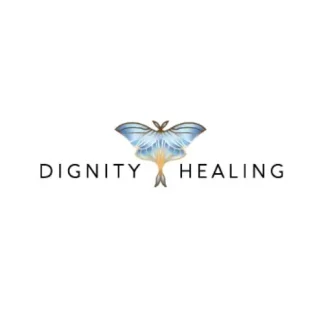Zinnia Healing at Lake Okeechobee
Nestled in the tranquil settings of Florida, Zinnia Health Lake Okeechobee emerg...
Zinnia Health in Lake Okeechobee, Pahokeke FL, is an accredited substance abuse drug rehab facility offering a comprehensive range of services to meet the diverse medical needs of individuals battling with addiction. With a patient centered approach and a team of experienced healthcare professionals, Zinnia Health is committed to delivering high quality care and improving the health and well being of individuals in the Lake Okeechobee area.
Zinnia Health offers a wide range of healthcare services designed to address various medical needs and promote overall wellness. Their experienced team of healthcare professionals is committed to delivering compassionate and personalized care to enhance the health and well being of their patients.
Zinnia Health incorporates medication assisted treatment (MAT) when appropriate, combining medication with counseling and behavioral therapies to support individuals in their recovery journey. MAT can help manage cravings, reduce withdrawal symptoms, and promote long term recovery.
Zinnia Health provides inpatient rehabilitation services for individuals requiring intensive support and a structured environment to overcome substance abuse or addiction. In their residential setting, individuals receive 24/7 care from a multidisciplinary team of healthcare professionals, including medical staff, therapists, and counselors, to address their specific needs and support their recovery journey. The state of the art facility offers a level of comfort that mimics home. Each room contains a smart TV, PlayStation 4, and a memory foam bed.
Zinnia Health offers specialized rehabilitation services for individuals struggling with substance abuse. Their multidisciplinary team of healthcare professionals provides evidence based treatments, counseling, and support to help individuals overcome addiction and achieve lasting recovery.
As part of its comprehensive rehabilitation program, Zinnia Health provides medically supervised detoxification services. They ensure a safe and supportive environment for individuals to undergo the withdrawal process, managing symptoms and offering guidance throughout this critical stage of recovery.
Contact us for more information: (561) 771-5446

Connect with Dignity Healing by calling their admissions team directly.
(561) 771-5446 Website Get DirectionsCognitive Behavioral Therapy (CBT) is a therapy modality that focuses on the relationship between one's thoughts, feelings, and behaviors. It is used to establish and allow for healthy responses to thoughts and feelings (instead of unhealthy responses, like using drugs or alcohol). CBT has been proven effective for recovering addicts of all kinds, and is used to strengthen a patient's own self-awareness and ability to self-regulate. CBT allows individuals to monitor their own emotional state, become more adept at communicating with others, and manage stress without needing to engage in substance abuse.
Research clearly demonstrates that recovery is far more successful and sustainable when loved ones like family members participate in rehab and substance abuse treatment. Genetic factors may be at play when it comes to drug and alcohol addiction, as well as mental health issues. Family dynamics often play a critical role in addiction triggers, and if properly educated, family members can be a strong source of support when it comes to rehabilitation.
Group therapy is any therapeutic work that happens in a group (not one-on-one). There are a number of different group therapy modalities, including support groups, experiential therapy, psycho-education, and more. Group therapy involves treatment as well as processing interaction between group members.
In individual therapy, a patient meets one-on-one with a trained psychologist or counselor. Therapy is a pivotal part of effective substance abuse treatment, as it often covers root causes of addiction, including challenges faced by the patient in their social, family, and work/school life.
Research clearly demonstrates that recovery is far more successful and sustainable when loved ones like family members participate in rehab and substance abuse treatment. Genetic factors may be at play when it comes to drug and alcohol addiction, as well as mental health issues. Family dynamics often play a critical role in addiction triggers, and if properly educated, family members can be a strong source of support when it comes to rehabilitation.
Group therapy is any therapeutic work that happens in a group (not one-on-one). There are a number of different group therapy modalities, including support groups, experiential therapy, psycho-education, and more. Group therapy involves treatment as well as processing interaction between group members.
In individual therapy, a patient meets one-on-one with a trained psychologist or counselor. Therapy is a pivotal part of effective substance abuse treatment, as it often covers root causes of addiction, including challenges faced by the patient in their social, family, and work/school life.
Group therapy is any therapeutic work that happens in a group (not one-on-one). There are a number of different group therapy modalities, including support groups, experiential therapy, psycho-education, and more. Group therapy involves treatment as well as processing interaction between group members.
In individual therapy, a patient meets one-on-one with a trained psychologist or counselor. Therapy is a pivotal part of effective substance abuse treatment, as it often covers root causes of addiction, including challenges faced by the patient in their social, family, and work/school life.
In individual therapy, a patient meets one-on-one with a trained psychologist or counselor. Therapy is a pivotal part of effective substance abuse treatment, as it often covers root causes of addiction, including challenges faced by the patient in their social, family, and work/school life.
Nestled in the tranquil settings of Florida, Zinnia Health Lake Okeechobee emerg...
Recovery Resources Enterprises is a private rehab located in Pahokee, Florida. R...